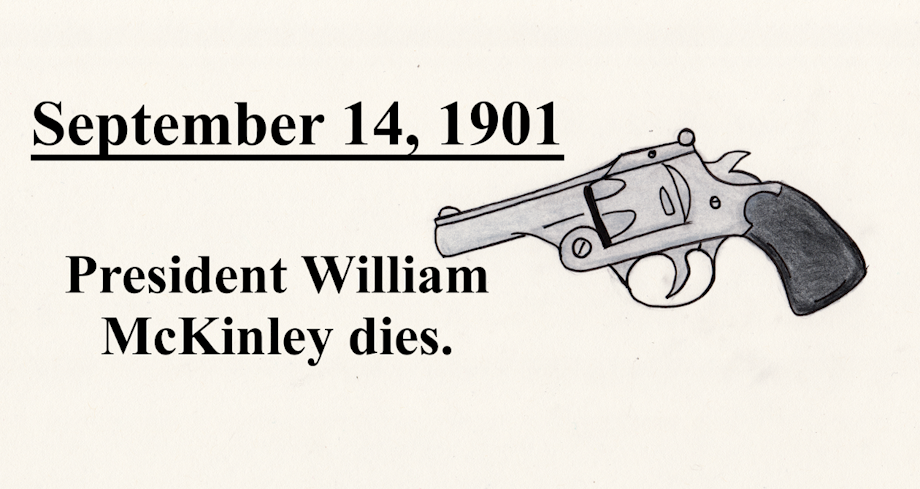On September 14, 1901, President of the US William McKinley passes away. A Republican and veteran of the American Civil War, McKinley supported a stronger federal government and advocated protective tariffs to help growing American industries, a policy which earned him support from many American laborers in late-1800s America. McKinley also oversaw a period of more aggressive foreign policy by the United States, including the Spanish-American War as well as the annexation of Hawaii.
While his economic policies and a growing American economy made him popular with many Americans, his prominence as a political figure made him a prime target during a time marred by a number of political assassinations. On September 6, 1901, William McKinley was attending the Pan-American Exposition in Buffalo, New York, when anarchist Leon Czolgosz shot McKinley twice in the abdomen with an Iver Johnson revolver. While the initial attack did not kill him, McKinley soon developed gangrene in his stomach as a result of his wounds. The 25th President of the United States would pass away early in the morning of September 14.
Following McKinley's death, Vice President Theodore Roosevelt took office, begin a successful career as President that would ultimately overshadow the accomplishments of his predecessor. Czolgosz was tried and convicted for murder only a few days after McKinley's death. Czolgosz was executed by electrocution on October 29, 1901.
Details
Published:
7 years, 5 months ago
15 Sep 2018 03:03 CEST
Initial: 6d48dea84535fd5399a7603ff2b3bbad
Full Size: f8b0fe10809a95688b941d856e51f7e9
Large: 50ccfdf7ac03f09c39b46da37e557eff
Small: 1f151d6e74f210f92015730e07557cdd
Stats
26 views
6 favorites
6 comments
